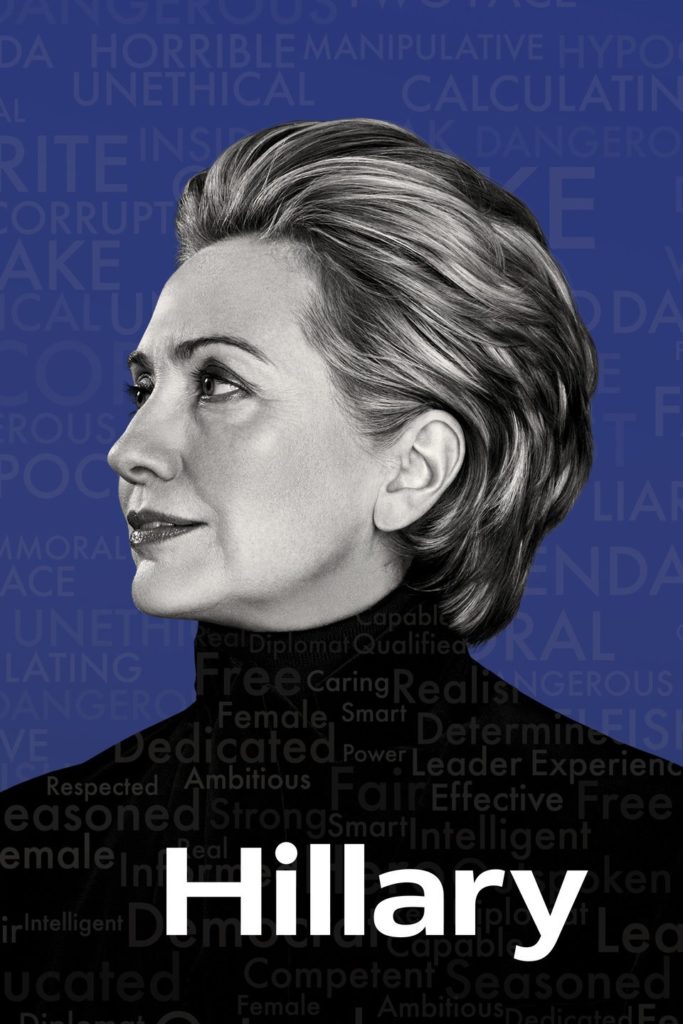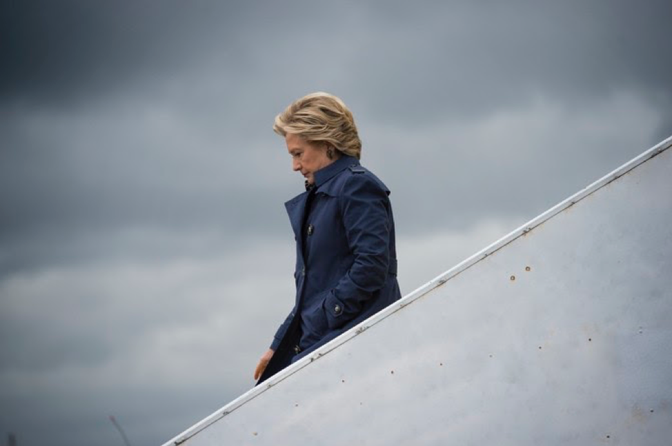“Hillary”–Unmasked

Hillary, an intimate and candid four-part series about former First Lady and Secretary of State Hillary Rodham Clinton– one of the most admired and vilified women in the world–features never-before-seen footage of her life from birth in a close-knit family in Chicago, Illinois. The mission of this documentary is not only to interview Hillary Clinton (for a total of thirty-five hours) and several dozen colleagues and personal friends but also to try to analyze why people found Clinton so compelling—and so polarizing. Yet Hillary is so much more than a biopic. It is a distillation of the history of contemporary feminism in the United States, sexism, the failure of journalism, and the history of partisan politics.
For the first time in perhaps four decades, we see Clinton engage in a wide-ranging conversation about herself as a private citizen with breathtaking courage and unflinching reflection on those mistakes. This is maybe the first time she hasn’t had to self-censor.
Even with her exclusive access to Hillary Clinton, filmmaker Nanette Burstein did not intend to go over familiar territory about perhaps the most scrutinized public figure in the last half-century. “Can a woman ever—really, actually ever,– become president of the United States?” To this day, there is no easy answer. And only one woman has come extremely, some would say, perilously close.
Childhood friends, her daughter Chelsea, former President Barack Obama as well as staff members, campaign managers, journalists, and senators, both Republican and Democrat, are interviewed. The former speaker of the House Newt Gingrich so hated the idea of being interviewed that he is on record as responding: “I would rather stick a needle in my eye than talk to you about Hillary Clinton in a documentary.”
Hillary frames the Hillary Clinton of the past half-century as a woman who learned that to be taken seriously, she’d have to wear a mask. She never fully removes it, of course, but in these interviews it occasionally slips, and clues about a brilliant intellectual that no one else seems to get are revealed. “I’m a private person,” Hillary confesses, “and I’ve made mistakes because of that.” As a woman especially, she may be just too cerebral for some people to put up with. Hillary Clinton is a national lightning rod for women’s status and image–the good, the bad, and the ugly.
Hillary Clinton was criticized for coming off as too cold,–even emotionless– but she had been forced to learn how to be affectless as the rare female law student at Yale University. Clinton’s gender hindered her in unpredictable ways as Burstein’s documentary unfolds. She was scrutinized, investigated, loved and hated.

At one interview, Hillary seems almost perplexed at the double standard, even after all the years on the campaign trail: “I’ve been on platforms with lots of male candidates, and they have shouted, they have beaten the podium, they have gone crazy with their hands and arms, and nobody said a thing.” “A woman candidate? Her voice rises, and somehow that’s over a line.” But what line has been drawn?
The filmmaker does a commendable job illustrating what Clinton was subjected to throughout her career: from footage of protesters with “Iron My Shirt” signs at her rallies, to male supporters earnestly advising her to smile more and wear something besides pantsuits. For younger viewers this past may seem almost unbelievable, in its blatant sexism. To the babyboomer generation, the behavior is dishearteningly familiar.
When Trump stalked behind Clinton in an effort to physically intimidate her, Clinton wanted to call him out, but didn’t. “He was preening like an alpha male.” She knew how the press would react.
Her communications director elaborates on why confronting Trump would have been ill-advised. “I think the post-2016 election world is a different universe — I think a woman could do that and be lauded for standing up to a man who was trying to intimidate her, but not then.” The same resistance to pushing back occurs throughout the film, in spite of anger: in the email with James Comey, in the PizzaGate trolling and in the Whitewater investigation.
She demonstrates how aware she is of the public’s perception of her and the role her gender has played in her polarizing image. And her most painful moments– when she had to face her husband’s sexual predation of Monica Lewinsky– are some of the most heartbreaking to watch. Hillary is personally hurt, admits that she could hardly breathe when Bill admitted he was lying, and demanded that he explain to their daughter about the affair. A fragile, chastened Bill Clinton is seen as a vulnerable humbled man for the unspeakable betrayal of her trust.
Clinton is also positive about how the women’s movement has brought change, but still there is no guarantee that the hard-fought changes and laws will not be rescinded or pushed back. Her tone is optimistic and hopeful, nonetheless.
Hillary is instructive and emblematic of a period in history that is not that long ago. Even for those who despise her, the series offers a unique glimpse behind the scenes of some of the most consequential moments in recent political history.
She cracked the glass ceiling. We now wait for it to be shattered. .
Note: Available on Hulu.

Susie Berteaux
First let me tell you I have a love/hate connection to Hillary. I admire her and think she is the most qualified, intelligent, knowledgeable and deserving politician alive to be President of the United States. With that said, I don’t particularly like her mainly because she is hard to read/like because of her public persona not matching her personal/private one that she allows the public to see. A friend was seated at Hillary’s table at a Presidential Dinner at the White House when Bill was President. She never really “liked” Hillary until that dinner – my friend was impressed with her warmth, inclusiveness and gigantic knowledge/intelligence of the world. Since that dinner, she has been a Hillary Fan and Promoter because of what she saw and experienced.
Now, because of my limited knowledge of how HULU works, I watched the 4th and last episode of “Hillary” first. It was so frustrating and painful to watch because I know how it would end. My grandson watched the whole series and was the one who told me how good it was. Because of this I had to talk to him about it. It helped me a lot to discuss the episode and feelings about the episode and to hear what the other episodes revealed to lead up to this last episode.
I wasn’t going to watch the rest of the series until I had this discussion. I am glad I did watch the rest. I still found the whole series painful because I saw someone who I admire and believe in so vulnerable. It showed me what a great price of personal commitment to be and to become one of the most powerful women in the United States. She is not only smart, thoughtful, and committed to her country, but she is a woman that cares about how this country treats its people. I only wish people could understand that such a strong complex woman as she would have been great for this country.
Lenore Gay
Looking forward to seeing this! I’ve read it’ll be coming out. Thanks for the review.